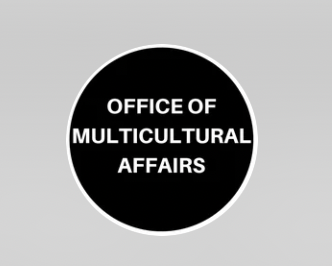
Fordham’s Office of Multicultural Affairs (OMA) is partnering with the Division of Student Affairs to host their Racial Solidarity Network (RSN) which takes place each semester. The event, which is in its sixth year of programming, invites members of the Fordham community to explore conversations of race and allyship in an effort to uplift minority voices on campus and increase empathy towards all racial identities. This event serves as an interactive workshop and will take place on both campuses.
Some key tenets of this training include personal self-examination and historical contextualization of how race plays a role in our society and within Fordham’s campus. Its primary goals are outlined on the university’s website, which include “promot[ing] a culture of inclusion where students, faculty, and staff, can reflect on their own racial and ethnic identity” and “question[ing] privileges and biases they may have, and think[ing] about race and ethnicity in more complex ways in order to better understand the unique challenges facing Fordham students.”
These goals are intended to align with the Jesuit idea of cura personalis — or care for the whole person — that Fordham encourages, as well as other aspects of Catholic teachings regarding the responsibilities one has to their community. This event and similar ones put on by OMA, such as a similarly structured workshop created for understanding and supporting LGBTQ+ identities, offer opportunities for students and faculty to expand their education and gain a more holistic understanding of the community that surrounds them.
Juan Carlos Matos, the assistant vice president for student affairs for diversity and inclusion, helps curate this event every year and shares why it is crucial to have opportunities for education such as this. “One of the cornerstones of the Racial Solidarity Network is establishing a core foundation regarding diversity, equity, and inclusion topics and concepts that are related to race and ethnicity specifically in the United States,” said Matos.
A key component to the event is racial caucusing. Matos said this practice allows for participants to speak openly and comfortably about certain experiences with their own identity. “Caucusing is a practice in anti-racist work that allows for participants to spend some time with those who have similar identities to them to discuss experiences with microaggressions, cultural appropriation and implicit bias,” says Matos. “Updated conversations within these caucus groups are based on colorism for the BIPOC Group and white privilege for the White Caucus Group.”
Director of Student Formation Leigh Weber worked extensively with the program in previous years and recalls the importance of these caucus groups and the program as a whole. “During my time working with OMA I was able to plan, coordinate and implement changes based on feedback and current events needed for the program with the team. Specifically, each semester I led the white caucus group, which is an important element to that program,” said Weber. “Often folks shy away from discussing race in fear of saying something wrong. I think it’s crucial that Fordham continues to host this program and continue to invite folks from across the university to participate.”
RSN has evolved significantly since its inception in 2017. Each year, the program adds new elements to further explore racial conversations and conceptualize ways to implement what is learned through this workshop into a larger community. Matos explained that one new element that has been added to the format of the workshop is “a closing activity to help participants more concretely come up with an action plan for themselves and departments [or] organizations that they are a part of.”
In addition to continuously adding new activities and exercises, each semester also focuses on different ways in which race plays a role in society. Matos shared that this semester, the event will take a unique focus on religion and culture. This will include “a short overview of race, religion and culture through the lens of various holidays and how people may experience the combination of their racial [and] ethnic identities and their religious identities,” said Matos.Fordham students interested in establishing a stronger understanding of the racial and ethnic identities of themselves and those around them are invited to attend. The Rose Hill workshop will be held on Wednesday, Nov. 29, and the Lincoln Center workshop will be on Thursday, Nov. 30. The registration form is on the Racial Solidarity Network webpage of Fordham’s website.






































































































































































































